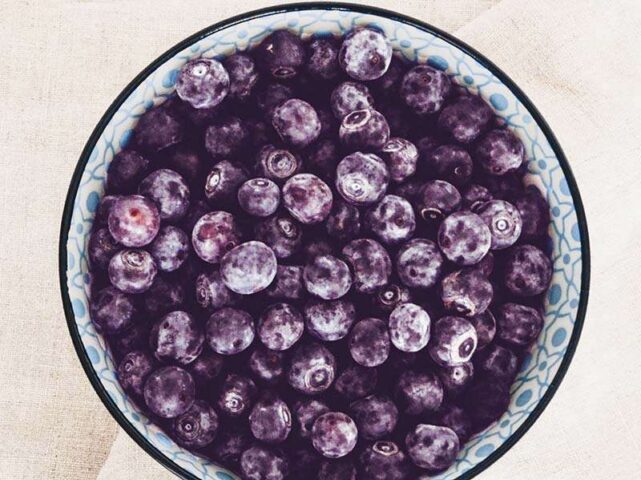Food and Mood: How What You Eat Affects How You Feel

By Reva Schlanger and LCWNS
Did you ever think about the connection between your food choices and your mood? Most people have heard of the word ‘hangry’ (hungry + angry), but may not know that there is a deep-rooted connection between our nutrition and emotions. Food and mood are a two-way street, meaning that our food choices influence our mood, and our mood influences our food choices. This is why as dietitians you may hear us say eat the rainbow. While we may be taking that phrase from Skittles, most of us mean eat all different types of colored foods (you can eat Skittles also!). Having a variety of different food components (i.e. carbs, proteins, fats) can help ensure a happy and healthy you!
Our brain is essentially the powerhouse for determining our mood. Chemicals in our brain, known as neurotransmitters, send signals through our body that can affect our stress levels and ability to concentrate. There are three neurotransmitters that have a strong impact on our mood:
- Serotonin: promotes a sense of calm and happy feeling; can also help with sleeping, eating and digestion.
- Dopamine: increase our motivation and sharpens our attention
- Norepinephrine: heightens awareness and attentiveness
The food that we eat breaks down into nutrients which serve as building blocks for these neurotransmitters. In short, without proper nutrition, our brain cannot communicate with the rest of our body. This “block” can lead to various changes in our mood. Not getting enough nutrition can inhibit neurotransmitters, disrupt sleep, and decrease blood flow to the brain. This means filling your plate up with all sorts of fruits, veggies, grains, meats and seeds! Not only does it help our mood, but by having a mixed plate it takes our body longer to digest the food = feeling satisfied longer and stable blood sugar. Say goodbye to sugar crashes! To help provide a visual, check out the chart below to understand how different nutrients affect our moods.
| Nutrient | Mood Response | Some Sources |
| Carbohydrate | Produces a sense of calm | Bread, cereal, potatoes, rice, beans, peas and corn |
| Protein | Enhances alertness and boosts motivation | Red meat, fish, poultry, dairy products, eggs, beans and nuts |
| Omega-3 Fatty Acid | Reduce cravings and keeps us level headed | Salmon, sardines, mackerel, herring, flax seeds and walnuts |
| Vitamin A | Impacts learning and memory development | Sweet potatoes, spinach, carrots, squash |
| Vitamin B6 | Improves memory and concentration | Fortified cereal and soy products, potatoes and chickpeas |
| Vitamin B12 | Regulates mood, controls emotions, and improves sleep | Oyster, fish, red meat, poultry, dairy products and fortified cereals |
| Folate | Prevents depressed mood | Broccoli, spinach, collard greens and grains |
| Vitamin C | Minimizes mood changes and boosts energy | Oranges, kiwis, strawberries, broccoli, tomatoes, and red peppers |
| Vitamin D | Eases depressive symptoms | Sunlight, fatty fish (salmon, mackerel, sardines), eggs, fortified milk, juice and cereal |
| Calcium | Reduced anxiety and improves sleep | Milk, yogurt, kale, fortified dairy alternatives (i.e., soy milk) |
| Iron | Fight’s fatigue and irritability | Red meat, eggs, beans, and fortified cereals |
Remember though, that it is not just what you eat, but also when and why you eat. External life stressors can affect our mood, which in turn can affect what we eat. This can lead to emotional eating, and feeling guilty after. Emotional eating is something that most people struggle with, so do not beat yourself up if you identify with it! Rather be curious, and try to understand your feelings. If you are stressed or upset, maybe it is time for some self-care or a mini vacation. Perhaps calling a friend to vent and going on a walk is the distraction and support you need. When highly stressed, you may benefit from a meal outline ensuring you eat every 3 to 4 hours. If you have trouble feeling your hunger cues, you may be emotionally full and can use a meal guide until you can read your internal regulation system.
The relationship between food and mood is complex, and research on the connection is constantly growing. This blog post is meant to be a small introduction on the connection between our brain and our food. Proper nutrition can help control stress levels and stabilize mood, which can help us create a more pleasant and mindful environment. With that being said, nutrition is not a substitute for medication prescribed for any form of mental illness. If curious, I would recommend speaking about this further with your doctor and dietitian! Stay tuned for a blog on our second brain also known as the gastrointestinal tract.







